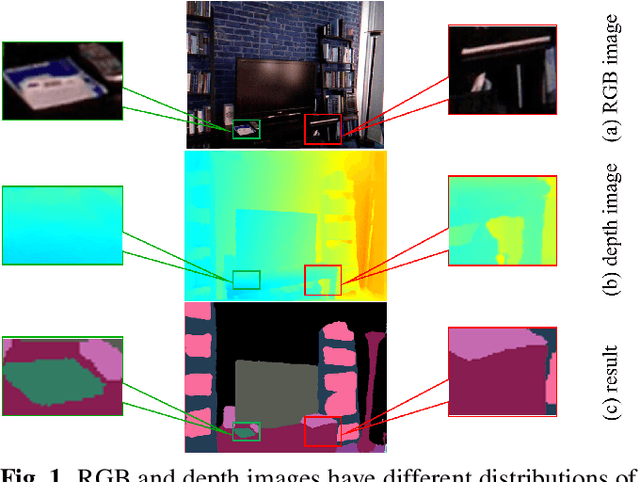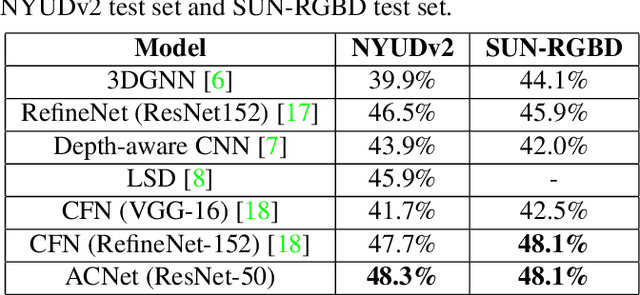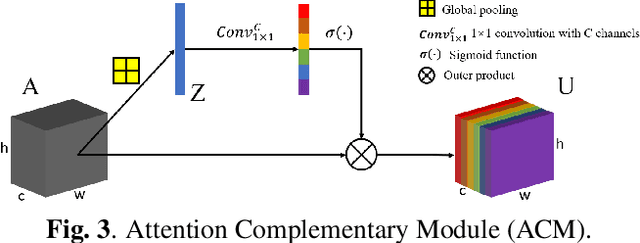Lei Fei
Realistic Bokeh Effect Rendering on Mobile GPUs, Mobile AI & AIM 2022 challenge: Report
Nov 07, 2022



Abstract:As mobile cameras with compact optics are unable to produce a strong bokeh effect, lots of interest is now devoted to deep learning-based solutions for this task. In this Mobile AI challenge, the target was to develop an efficient end-to-end AI-based bokeh effect rendering approach that can run on modern smartphone GPUs using TensorFlow Lite. The participants were provided with a large-scale EBB! bokeh dataset consisting of 5K shallow / wide depth-of-field image pairs captured using the Canon 7D DSLR camera. The runtime of the resulting models was evaluated on the Kirin 9000's Mali GPU that provides excellent acceleration results for the majority of common deep learning ops. A detailed description of all models developed in this challenge is provided in this paper.
ACNet: Attention Based Network to Exploit Complementary Features for RGBD Semantic Segmentation
May 24, 2019



Abstract:Compared to RGB semantic segmentation, RGBD semantic segmentation can achieve better performance by taking depth information into consideration. However, it is still problematic for contemporary segmenters to effectively exploit RGBD information since the feature distributions of RGB and depth (D) images vary significantly in different scenes. In this paper, we propose an Attention Complementary Network (ACNet) that selectively gathers features from RGB and depth branches. The main contributions lie in the Attention Complementary Module (ACM) and the architecture with three parallel branches. More precisely, ACM is a channel attention-based module that extracts weighted features from RGB and depth branches. The architecture preserves the inference of the original RGB and depth branches, and enables the fusion branch at the same time. Based on the above structures, ACNet is capable of exploiting more high-quality features from different channels. We evaluate our model on SUN-RGBD and NYUDv2 datasets, and prove that our model outperforms state-of-the-art methods. In particular, a mIoU score of 48.3\% on NYUDv2 test set is achieved with ResNet50. We will release our source code based on PyTorch and the trained segmentation model at https://github.com/anheidelonghu/ACNet.
 Add to Chrome
Add to Chrome Add to Firefox
Add to Firefox Add to Edge
Add to Edge